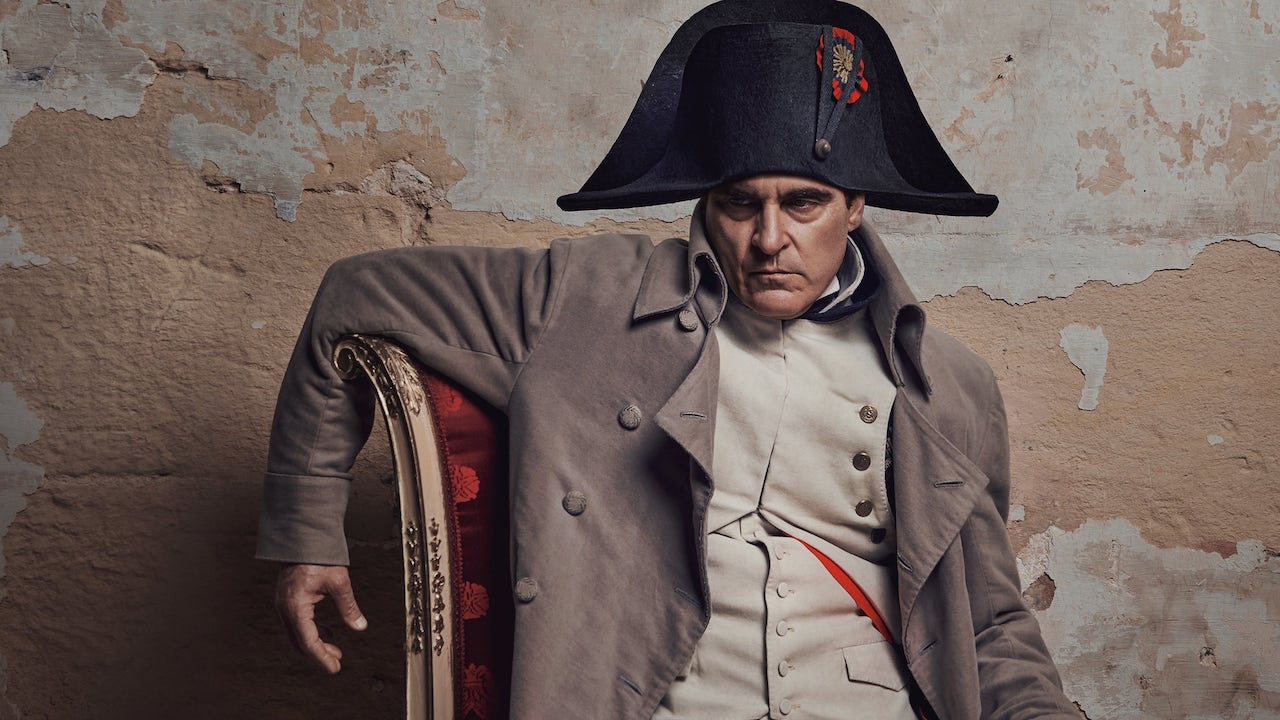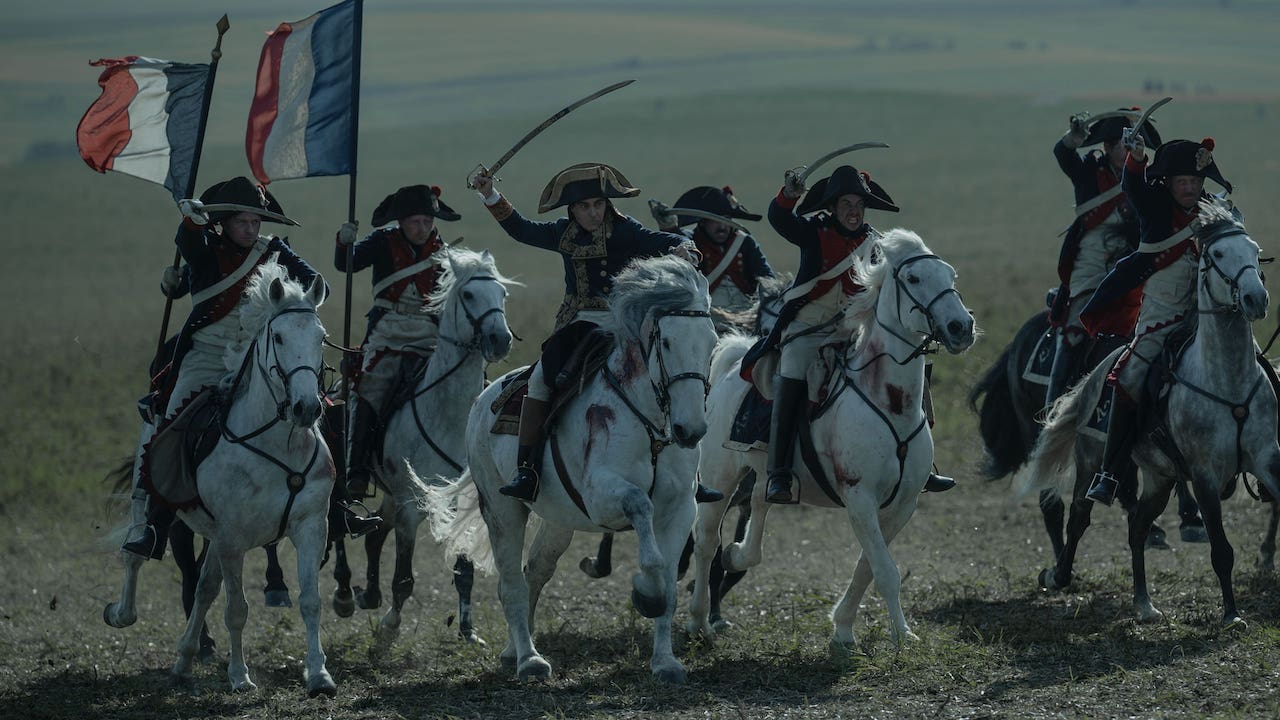Joaquin Phoenix’s Napoleon is as charming as a smelly old sock

Ridley Scott and Joaquin Phoenix attempt to bring back the “multiplex magic” of historical epics with Bonaparte biopic Napoleon. But to Luke Buckmaster, dour performances and a funereal tone suffocate any chance of a truly legend-worthy portrait.
“On my signal, unleash hell!” roared Russell Crowe’s Maximus in Gladiator. One can easily imagine that same line bellowing out of Joaquin Phoenix in Napoleon, another old-timey bells-and-whistles blockbuster directed by Ridley Scott. This one follows the French emperor’s rise to power, romance with Vanessa Kirby’s Josephine, and hell-unleashing war manoeuvres. Both productions are about as epic as they come, lavished with period details and battle spectacle that’s refreshingly light on CGI.
But while the meaning of Gladiator can be easily condensed—it’s about wielding political power by manipulating the masses—Napoleon doesn’t have a striking cut-through message. Nor a clear way to rationalise it beyond the obvious: that it’s another ostentatious period drama about a ruthless leader, featuring power-jostling and calamitous corpse-strewn combat scenes. Scott, who has directed several great films and several stinkers, mostly seems inspired to recapture the kind of multiplex magic, a David Lean or Cecil B. DeMille-esque largesse, that has more or less gone the way of the dodo.
It begins in 18th century France, the smell of revolution in the air, people singing the song of angry men. Napoleon ambles around looking solemn, surveying troops and contemplating how to beat the Brits. The colour palette is chalky, like it’s been smoked. The first battle scene—1793’s Siege of Toulon—is staged in dim lighting, lots of stink and fire and running around. Like the film itself, this sequence is neither elegantly staged nor frenetic; you won’t come away from it with your spine tingled, or wooed by balleticism and choreography.
Old mate Bonaparte hangs around with Vanessa Kirby’s Josephine and the embers of romance begin to glow—but it takes a long time for their relationship to feel more than transactional. They have a strange, kind of interesting chemistry: one can’t be sure if their attraction is more a matter of mutual respect, or mutual disdain for everybody else. It’s not the kind of relationship that has sparks and fizz. As for Phoenix’s performance, that’s pretty frictionless too: he’s in many scenes but he owns few. Or in another sense, perhaps he owns everything, his glumness seeming to sour the entire film, making it sleepy and irritable.
When Napoleon screams at Josephine, he sounds more like a petulant child than a legend-in-waiting. Scott doesn’t go into much detail about how the subject rose to power and inspired a following: ordinarily one might assume it has to do with gravitas and charisma, but this Napoleon is as charming as a smelly old sock. I wanted somebody to slap him in the face with a cold fish. Some of his dialogue signposts the film as a comedy, or at least one that’s momentarily funny—such as the thoroughly memeable “destiny has brought me this lamb chop” and “you think you’re so great because you have boats!” But Scott’s funereal tone isn’t very accomodating; you don’t feel like you’re supposed to have fun with it. There’s not enough air to laugh.

It’s a shame the director, during a PR blitz more entertaining than the film itself, spoke poorly of Abel Gance’s 1927 masterpiece of the same name, telling the New Yorker: “I couldn’t get through it, honestly.” Gance’s Napoleon is brilliant: an amazing, towering experience full of visual inventions and terrific imagery, from an introductory childhood snowfight to an exquisitely rousing and surreal moment with an eagle. The bird infers his soaring destiny, spreading its wings, mapping it out in the stars. A testament to the power of a single image, more evocative than any carnage-strewn battle scenes.
These scenes are, in Scott’s film, by far the best bits. You can feel the director working hard—filling and invigorating the frame, deploying all sorts of stimulus, cutting and arranging with aplomb. I’d be surprised if Apple’s upcoming four hour cut has much more where this came from, given roaring battlefield moments aren’t usually bits that end up on the cutting room floor. Gladiator has fans (myself included) who reference it and enjoy returning to its spectacle from time to time. It’s hard to imagine Napoleon generating the same kind of following.




















